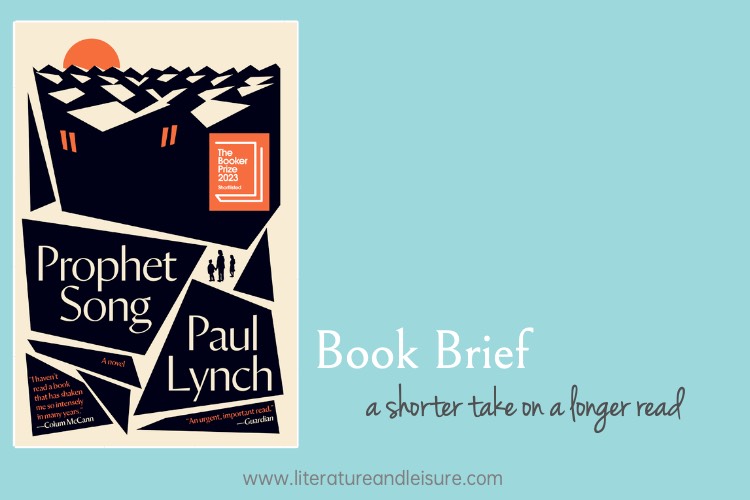
If I had been handing out the awards, American Fiction would have won the Oscar in 2024 for Best Picture and not just Best Adapted Screenplay. I touched on that in my annual Oscars wrap-up. But congrats to Cord Jefferson for his win for the screenplay.
When I realized American Fiction was based on a novel, I immediately set out to read it. The novel is Erasure by Percival Everett, published in 2001. But Everett is back in the forefront of bookish conversations with his latest novel, James, a retelling of The Adventures of Huckleberry Finn from Jim’s point of view.
American Fiction (and Erasure) tells the story of Thelonious “Monk” Ellison, a brilliant writer and English professor who happens to be African American. Monk is discouraged that, because of his race, he’s consistently billed as an “African American writer” when his texts have nothing to do with the Black experience. Using a pseudonym, he pours out his frustration in what is meant to be a parody: a stereotypical, first-person account of a young, Black man that – as you would expect – becomes an instant best seller.
If the main narrative is unique to the Black – and more specifically, the minority artist’s – perspective, the subplot is absolutely universal. While Monk is navigating his future professionally, he’s dealing with an aging mother and the dynamics among siblings in caring for her. The dichotomy between the storylines’ individual versus common experiences would make for a wonderful discussion.
Cutting to the chase: I recommend both American Fiction and Erasure. The movie follows the book pretty closely. Without providing spoilers, I preferred the ending of the novel more than that of the movie. But movies want drama, and Cord Jefferson provides that.
I was recently chatting with a friend who finally got around to watching the movie, and we were theorizing on why the movie didn’t “do” better when it came to awards. In addition to the subject being timely, the acting is superb. We concluded that American Fiction may have been too “smart” for the common audience.
To that point, if you do read Erasure, know that you’re just going to skip the chapter where Monk is reading his latest paper at a linguistics conference. It serves to underscore how brilliant he is, but I absolutely could. not. follow. I don’t mind saying it was way over my head. (Sorry, Dr. Nunnally.)
I hope that more people will watch American History and read Erasure. If you do (or already have), let me know and join me in spreading the word.
Book Club Prompts for American Fiction or Erasure
How does this story show the impact of stereotypes on society? What are other examples?
How does the universal subplot of Monk caring for his mom impact the unique experience told in the primary storyline?
If you read Erasure and watched American History, which did you prefer? What were the strengths and weaknesses of each?
Considering the “text within the text”, how are the experiences of the main character in Monk’s novel similar to his own?
Discuss the two titles chosen for this story – Erasure and American History. What is the significance of each, and do you prefer one more than the other?
What other groups or minorities have similar experiences and what are examples of them?
In the novel, there’s an additional and significant storyline about Monk’s father. How has that relationship shaped (and continues to influence) Monk?
How do the movie and the novel use humor to comment on the state of society?





Comments
Powered by Facebook Comments